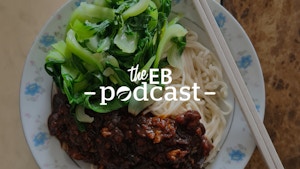#plant-based food 新闻

Climate tech financing has dwindled in recent years, while investor doubts on alternative proteins persist. In a difficult year for sustainability technologies, Eco-Business spotlights some of the innovations that still made the headlines.

A global shift towards a diet that reduces “overconsumption” in meat and dairy products could cut 17 per cent of global food emissions annually, new research shows.

The United Nations Guiding Principles on Business and Ruman Rights (UNGPs) defines HRDD as a process of identifying, preventing, mitigating, and accounting for any human rights violations.

Industry watchers say local start-ups are more nimble and adept at customising their plant-based products to cater to the market’s unique palate. They stand a chance of avoiding problems that have plagued the business in the West.
#plant-based food 观点

Countries must address the cow in the room in the lead up to Brazil’s COP30.

The global food system is responsible for about 30 per cent of annual greenhouse gas emissions.

Switching menus so meat is not the default option dramatically reduces meat consumption. But will the effects last?

粮食和农业
Meat: only on Mondays
Meat and diary production are major sources of greenhouse gas emissions. The message from scientists is clear - we need to rethink what we put on our plates.
#plant-based food 视频

Novel food firms are dreaming big about market expansion, but first they must overcome diners' doubts and a huge cost hurdle.

The origin of Covid-19 is believed to be a market selling live wild animals. Eco-Business asked Anbarasi Boopal of Singapore-based animal welfare charity Acres about the link between the exploitation of animals and pandemics, and what can be done to curb the illegal wildlife trade.
#plant-based food 播客

EB工作室
What are the latest trends in the alternative proteins industry today? The Eco-Business podcast discusses new hybrid products, more localised offerings and cheaper prices due to economies of scale.

EB工作室
Nobody likes being told what to eat, but changing diets could make or break climate action. The Eco-Business Podcast explores how best to convince people to choose food good for people and planet.

A Singapore-based firm has just hatched a new plant-based egg product. The company's founder, Vinita Choolani, tells the Eco-Business Podcast why plant-based eggs will soon be a popular addition to nasi lemak and fried noodles dishes all over the region.
#plant-based food 研究

Asia Research and Engagement
Exploring the appetite for alternative proteins









